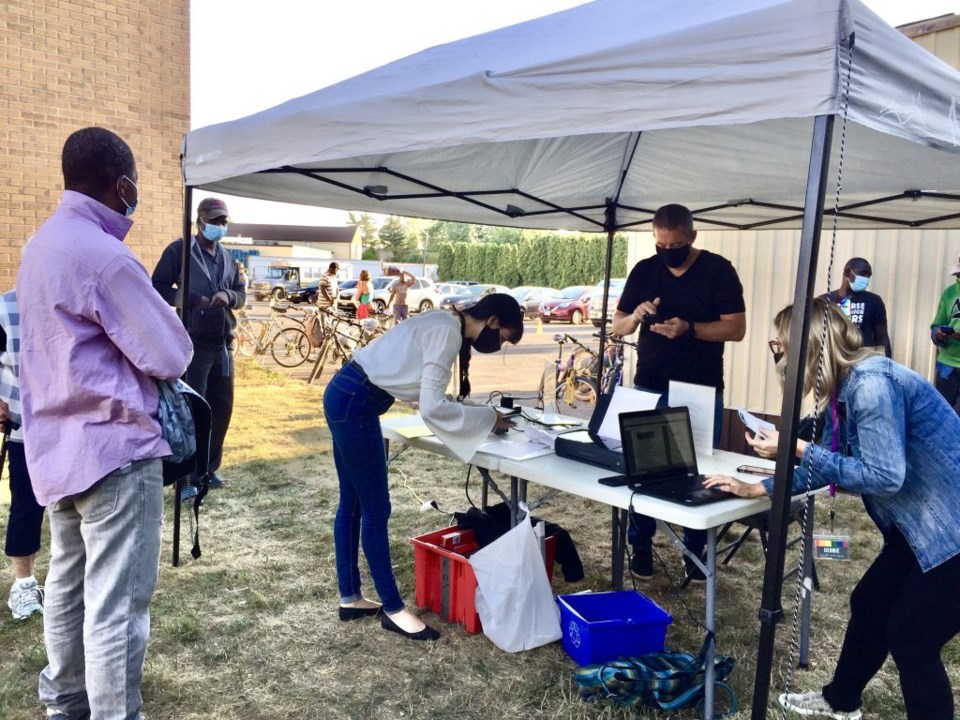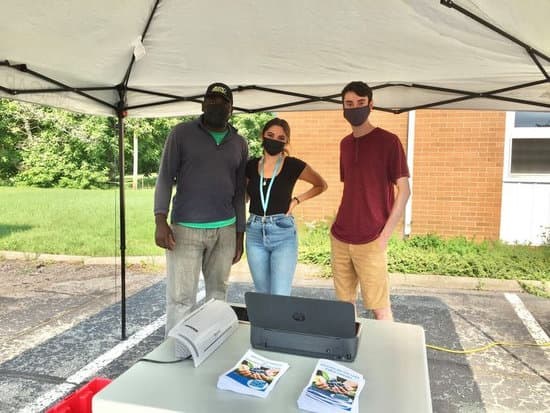
As mentioned in last month’s column, we’re implementing our four-year strategic plan and this month, I’m highlighting library staff serving our migrant worker community. Bringing library programs and services to all areas of the municipality, community events and to those who cannot come to the library is one of the goals of our second strategic direction, “build community.” Community engagement coordinator Debbie Krause has been going out to the migrant worker community over the last few years to better understand their needs and how best to meet them.
This year, thanks to an expanded Young Canada Works program, we were able to hire Mariana van Berkum on contract to assist Debbie. Mariana moved with her family to NOTL from Colombia in 2008, and attended Parliament Oak and St. Michael Catholic elementary schools, Holy Cross Secondary School and is currently a fourth-year criminology major with a minor in law and society at Wilfred Laurier University.
Mariana knows the community and is fluent in Spanish, which has been a huge help building rapport and gathering information from Spanish-speaking workers. As Mariana explains, “after doing some research, I created a flyer with information about local services and agencies that advocate for and help migrant farm workers. Debbie and I wanted to set up in a location where the workers could easily reach us, so we could create a bond and discover what services the library could provide. With the opening of the Migrant Worker Hub, run by Julia Buxton-Cox, it gave us a great location where we could connect and do outreach work.”
When I asked Mariana what kinds of services migrant workers need, she explained the first thing they asked for was help printing and laminating vaccine receipts. Laminating receipts for over 500 workers opened the door to conversations about their needs and what the library could do for them. Max Ramos, who has worked as a student page at the library since 2016 and is currently in his fourth year of political science studies at Brock University, also works at The Hub and explains vaccine receipts are needed to return to home countries. Max, Mariana and Debbie set up an internet hotspot, printer and laminator every Thursday at The Hub and Communities in Bloom volunteers provide produce from our community garden for the workers to take free of charge.
Over the summer, Max saw some of the farm workers from The Hub at the library. “They used the printer/copier to create copies of their work schedules for themselves and other workers that lived with them. The main obstacle preventing more migrant workers from coming to the library is transportation and free time. They have the money to pay for printing/copying services and have a need for Wi-Fi but the library is a significant distance from most farms, and they almost only rely on bikes. Additionally, since they have limited hours off work, many don’t want to spend the majority of those hours commuting to and from the library.”
After a few months at The Hub, staff and migrant workers got to know each other and, as Mariana describes it, “we realized our presence was extremely appreciated once we started establishing a connection with the workers, and as they became more comfortable, they began asking for help filling out applications, printing documents and translating forms. Each week we realized the library offered services workers needed but lacked accessibility to, so it was great that we were able to go to them.”
In addition to working directly with migrant farm workers, Debbie also works with library, church, health and social justice organizations who support the workers. She is pleased to report these groups are now working more closely together. She also shared some of the things we’ve learned from our time at The Hub:
• There is a lack of safe transportation from most farms to services like The Hub, library, grocery stores, post office, etc.
• Both Spanish and English-speaking workers want English literacy classes.
• Many requested assistance filling out government forms for things like pension and immigration.
• Many do not know where other farms are located — farms where they have friends and family — and there’s a general lack of geographical knowledge about the area.
• Many had no idea how to navigate the health care system — in fact, they were unaware they had a health card number.
Mariana also saw the need for literacy classes and for recreational classes, such as painting, “something they could do aside from work, in a different but safe environment.” Max sums up his Hub experience this way: “I was really happy I got to help with the program this summer. I learned a lot about the migrant worker community and think this community is often overlooked or ignored in conversations about Niagara-on-the-Lake. This experience helped me to understand the major role that they play in the community.”
Library staff and volunteers, such as Jane Andres, Julia Buxton-Cox, Terry Weiner, Mark Gaudet and many more, are making sure the migrant farm worker community isn’t overlooked, and is better served. We are honoured to work with them."
